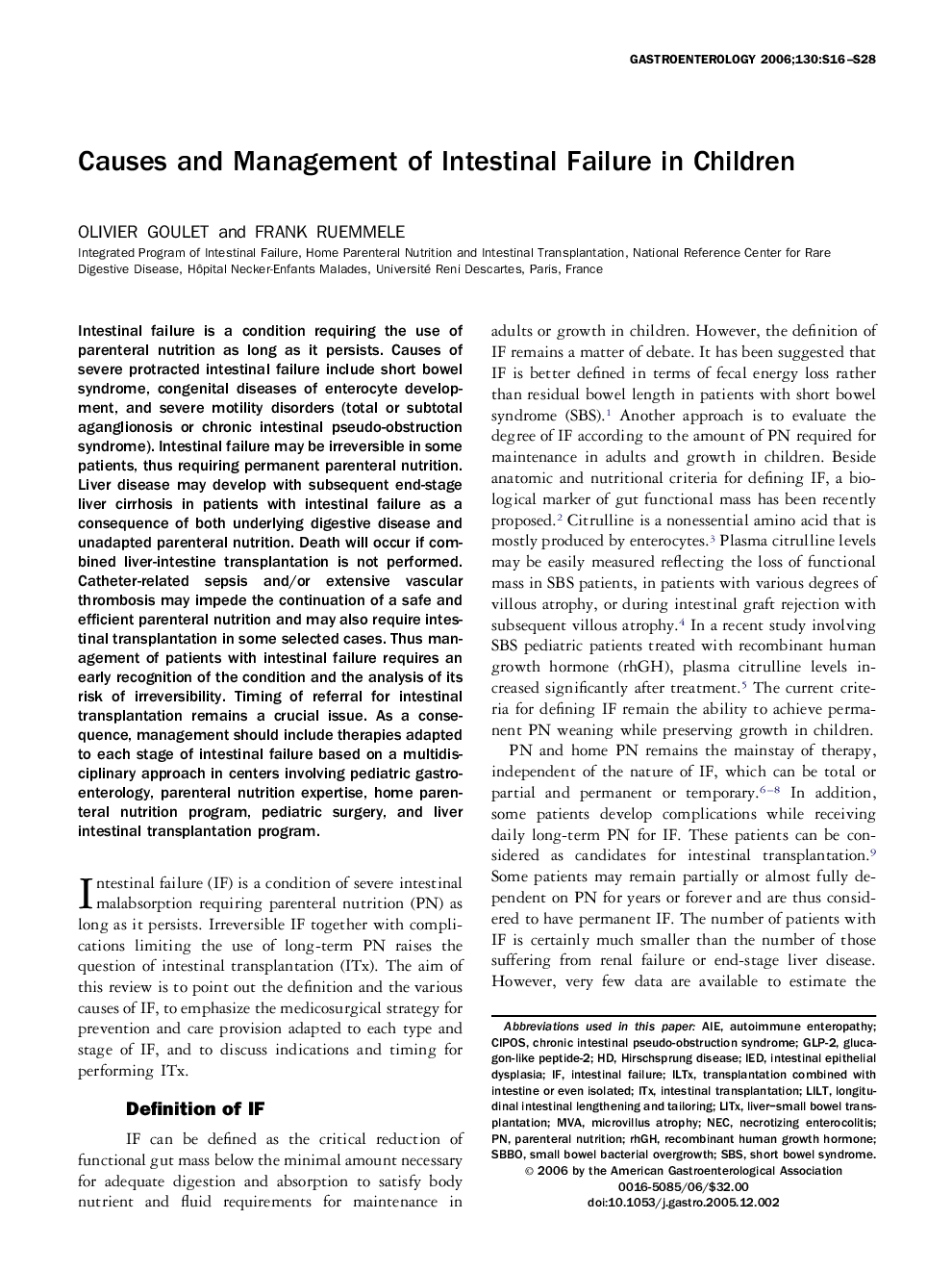| کد مقاله | کد نشریه | سال انتشار | مقاله انگلیسی | نسخه تمام متن |
|---|---|---|---|---|
| 3299673 | 1209934 | 2006 | 13 صفحه PDF | دانلود رایگان |

Intestinal failure is a condition requiring the use of parenteral nutrition as long as it persists. Causes of severe protracted intestinal failure include short bowel syndrome, congenital diseases of enterocyte development, and severe motility disorders (total or subtotal aganglionosis or chronic intestinal pseudo-obstruction syndrome). Intestinal failure may be irreversible in some patients, thus requiring permanent parenteral nutrition. Liver disease may develop with subsequent end-stage liver cirrhosis in patients with intestinal failure as a consequence of both underlying digestive disease and unadapted parenteral nutrition. Death will occur if combined liver-intestine transplantation is not performed. Catheter-related sepsis and/or extensive vascular thrombosis may impede the continuation of a safe and efficient parenteral nutrition and may also require intestinal transplantation in some selected cases. Thus management of patients with intestinal failure requires an early recognition of the condition and the analysis of its risk of irreversibility. Timing of referral for intestinal transplantation remains a crucial issue. As a consequence, management should include therapies adapted to each stage of intestinal failure based on a multidisciplinary approach in centers involving pediatric gastroenterology, parenteral nutrition expertise, home parenteral nutrition program, pediatric surgery, and liver intestinal transplantation program.
Journal: Gastroenterology - Volume 130, Issue 2, Supplement, February 2006, Pages S16–S28